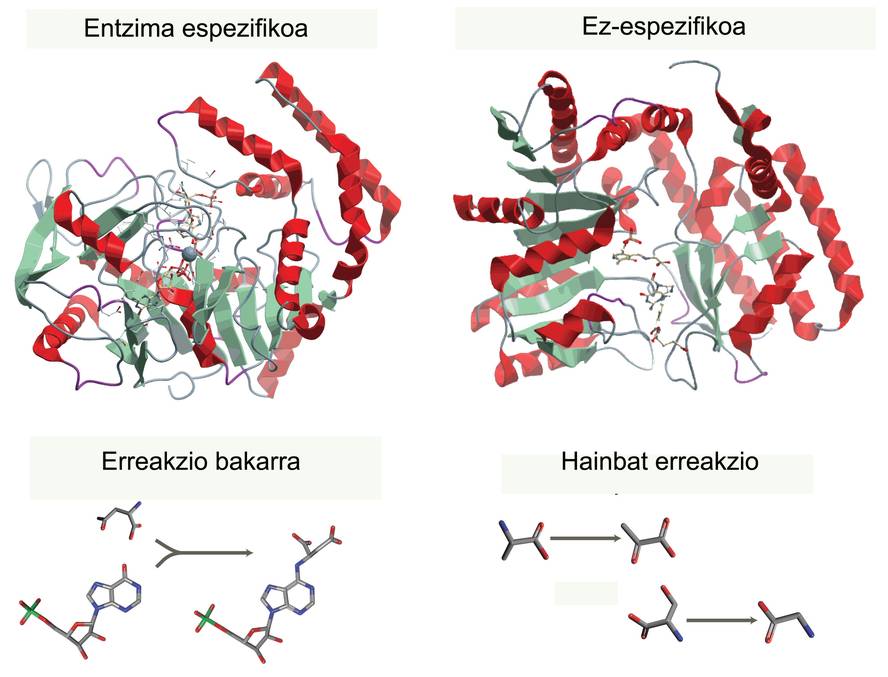They have shown that not all enzymes are specific
Now the bioengineers at the University of California have shown that this is the case, that there are unspecific enzymes. According to the journal Science, 37% of the enzymes that catalyze the metabolic reactions involved in the growth of the bacterium Escherichia coli are not specific.
In fact, researchers have been constituting the genetic model of the metabolism of E. coli bacteria for years in order to understand the evolution of enzymes. They say that until now the enzymes have been analysed individually, but they have changed paradigm and have shown that the enzymes are influenced by other enzymes, so it is necessary to analyze the evolution of the whole system instead of that of each enzyme.
Thus, taking as reference the whole cell, they have seen that the more necessary an enzyme is in the metabolism, the more specific and effective it is. On the contrary, those who only partly intervene in cell growth are less specific and “useless”, so to speak. This disappointment, however, does not harm growth, since these enzymes are more resistant to changes in the medium and are not as necessary as specific and effective enzymes.
In addition, the researchers highlighted that their work confirms the success of systems biology. They consider that working with this concept can report good results in the short and long term.







